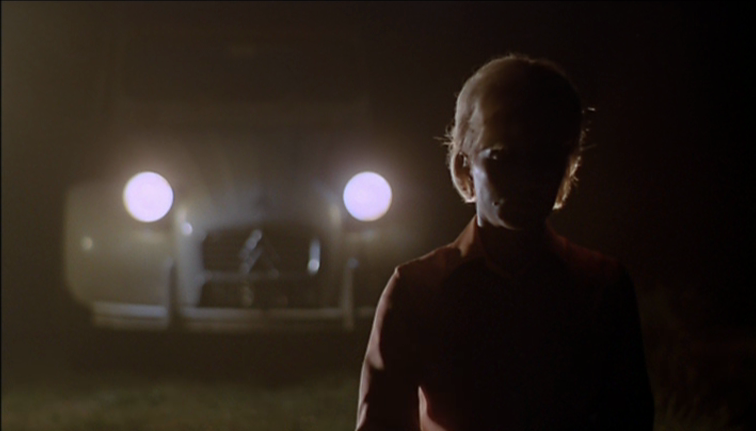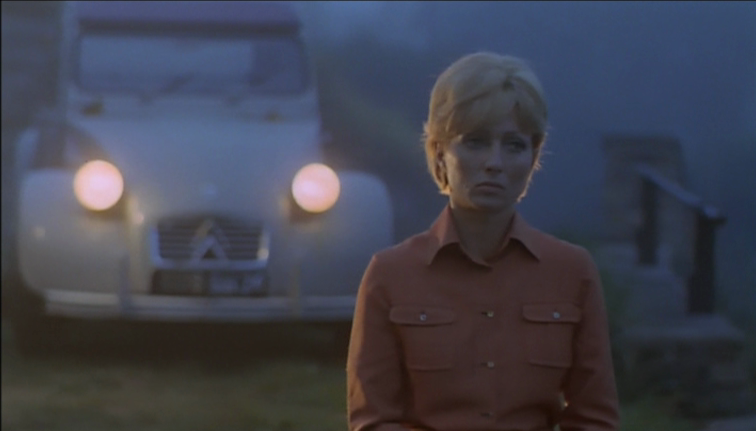Le Boucher (1970).
Although not something that seems in vogue a great deal today, sex and death have been frequent bed-fellows in the movies from the earliest days of cinema. The love the Phantom felt for Christine and the jealousy that controlled him (The Phantom of the Opera 1925); the lust of Scottie and the lengths he would go to recreate his lover in Hitchcock’s Vertigo (1958); and of course the sexual tension between Detective Nick Curran and Catherine Tramell in Paul Verhoeven’s Basic Instinct (1992). In many ways it’s perhaps one of the most common themes in the Horror and Thriller genres throughout the history of the movies, so it was inevitable it would be the subject for one of the Nouvelle Vague.
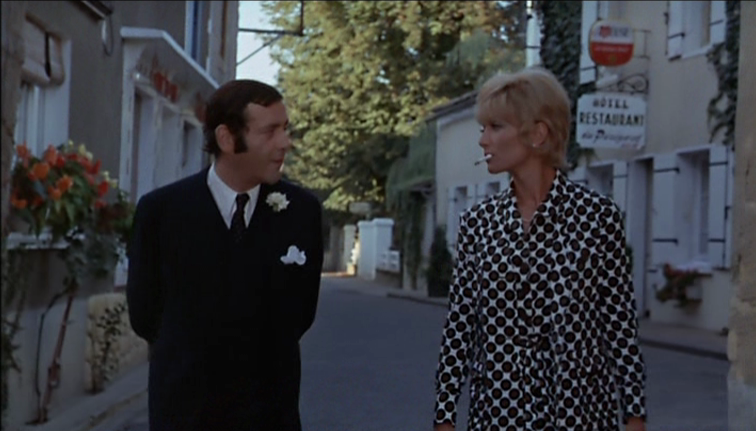
The result was Le Boucher directed by Claude Chabrol. It’s the story of the relationship between the headmistress of a small town school, Helene (Stéphane Audran), and the local butcher, Popaul (Jean Yanne). Both have pasts that haunt them. Helene was in a relationship that resulted in a terrible breakup and now she lives alone in the school she runs. Popaul has returned from the army and reminisces repeatedly about the blood and death he has witnessed. So damaged is his psyche it seems that almost any incident, no matter how trivial can trigger a memory or flashback.
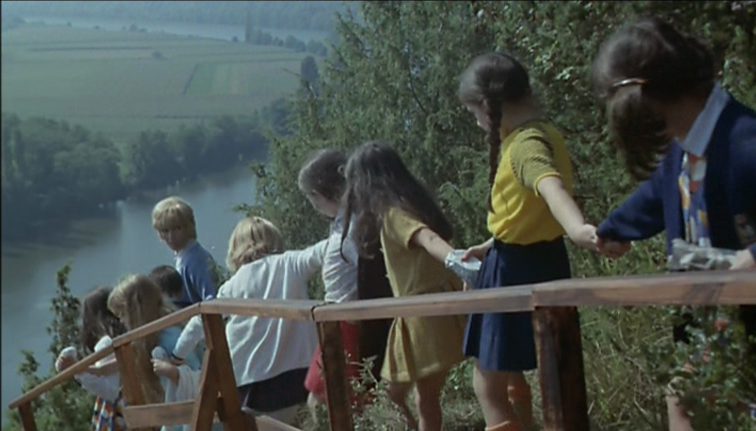
They meet at a wedding and quickly establish a rapport, however, it’s not an even relationship. Popaul wants to be intimate and at one point asks Helene if he could kiss her. She declines and it becomes clear that although she really enjoys his company, it’s never going to become sexual.
Although the village is very quiet, it’s soon rocked by the news of the murder of a young girl. Police are seen passing the school and later on when Helene finds another body, a detective begins asking questions. But this is not a film about a police investigation, Chabrol is solely interested in the relationship between the two leads.
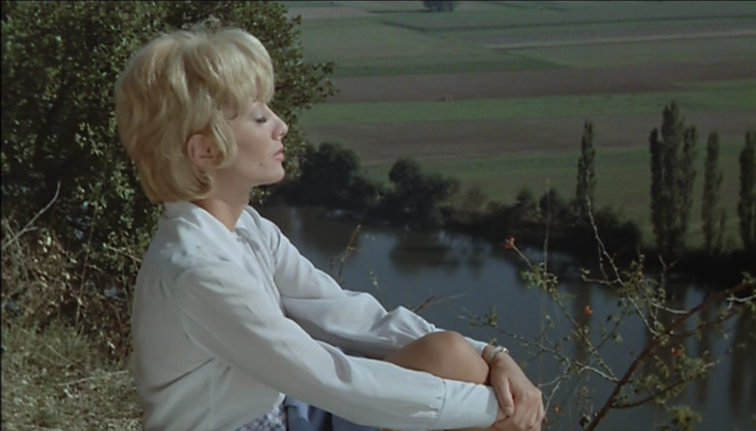
Le Boucher, like many other films of the French New Wave, is very naturalistic in its approach. The emphasis is on immersion in reality rather than merely creating and maintaining tension. Le Boucher is often compared with the films of Alfred Hitchcock and there are obvious comparisons but I think this only goes so far as Chabrol is not a mere imitator of the master. He’s making his own film in his own style and with his own clear intentions and motivations.
From the outset we know that something is wrong, that the peaceful and beautiful village life is going to be disrupted. We know this in part because of the brilliant discordant music by Pierre Jansen that puts the viewer immediately on edge, adding a menace to even the most idyllic setting.
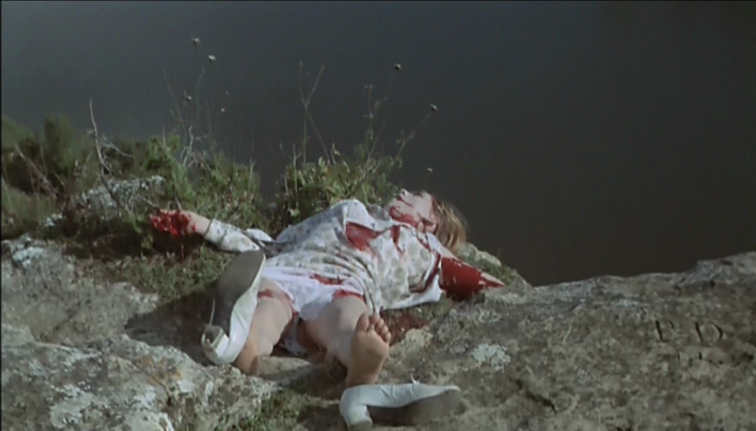
It’s obvious from the start that Popaul is the killer. It’s obvious for anyone who knows the basics of narrative conventions. The focus is entirely on these two people and the film has very little interest in the wider community, there are no other real candidates. If the film were to reveal, right at the end, that the killer was some passer-by we have briefly seen a few times, or possibly someone we were introduced to during the wedding but who subsequently disappeared from view, it would have been a major cop-out. We need a cathartic ending, one that fulfilled our expectations but also revealed more about these two interesting and likeable characters.
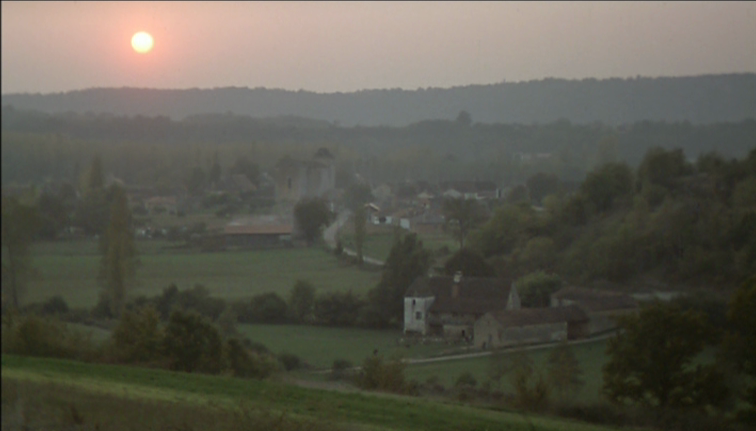
The ending, in which confessions are made and more truths are revealed, is the most successful part of the film. There is a powerful sense of lyricism in the last 10 minutes or so that made me want the film to continue. Claude Chabrol was not known as a challenger of formalism like his fellow Cahiers Du Cinema directors such as Goddard or Truffaut. The setups are simple and he seldom employs anything that could be considered as flashiness. There’s a wonderful 3-4 minute tracking shot of the two protagonists when they first get to know each other but this is merely an unobtrusive two-shot, languidly following their conversation.
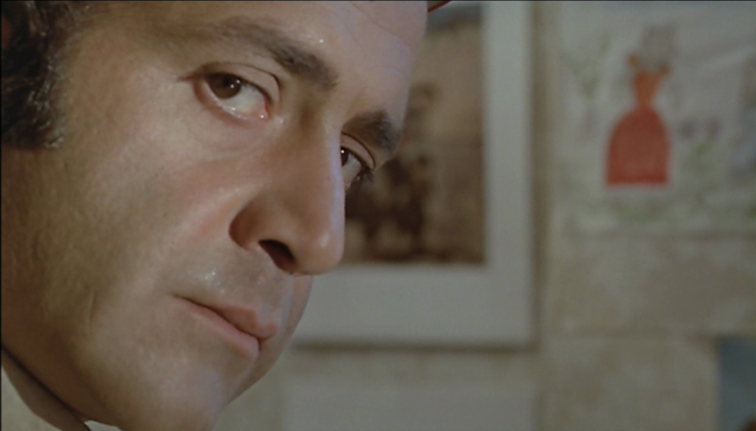
It’s at the end that his sense of style really comes to the fore. As the truth of Popaul’s guilt hits Helene she almost passes out. As she closes her eyes a black mask falls on the image, mirroring her eyes lids. This is repeated quickly in close succession and is stylish yet still relevant, perfectly capturing the impact of the truth upon Helene. When she opens her eyes the effect is reversed revealing the extent of Popaul’s guilt and grief at what he’s done.
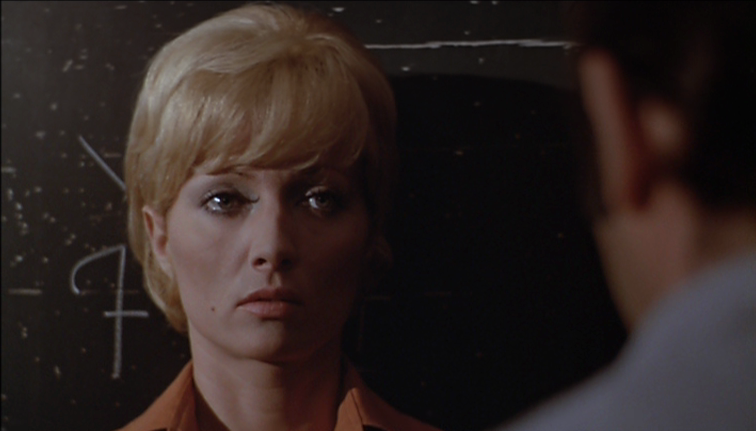
The final scene, as they drive through the village past fields and down country lanes, is hypnotic. Popaul confesses by revealing the full impact of his time at war. It is a haunting, hypnotic, mesmerising piece of cinema. Throughout the film, we’ liked this man. We’ve shared Helene’s feelings for him even though we knew he was a killer and, if anything, this scene reinforces these feelings. We understand his trauma and possibly even empathise with him.
Is this a flaw in the film? Because we never see the actual murders the victims are remote and their loss isn’t felt by us. I do think this was intentional and it is a criticism that can be easily applied. By the end of the film it is Popaul who is presented as the victim, not the woman he has murdered. In many ways the approach is similar to Fritz Lang’s M, in which Peter Lorre’s child killer is wracked with guilt and pain because of the things he has done, even though he can’t stop doing them.
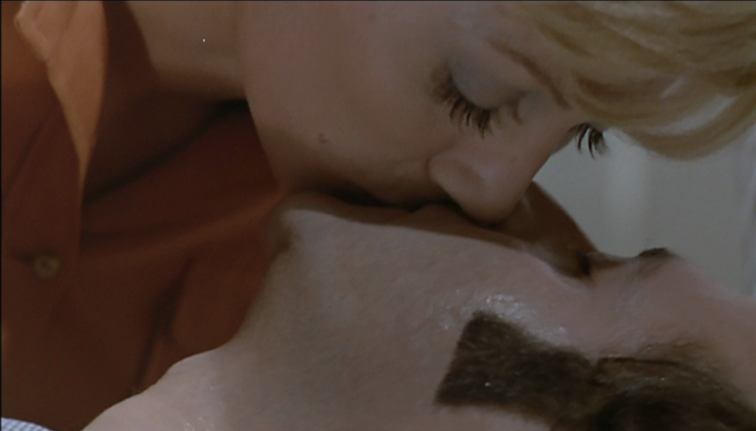
There is also a question of Helene’s guilt. She suspects early on yet seems to cover it up and at the end, she doesn’t judge him, she tries to save him. Surely this makes her complicit? We are left to put this together ourselves. It’s the responsibility of the audience to judge these people’s guilt (and possibly feel guilt ourselves for being somewhat complicit – after all, we like these characters).
I don’t want to give the impression that these issues are flaws, only that I know that some people will see them as such. Chabrol’s focus is obviously on Helene and Popaul; it is not a morality piece and there were no censors standing over his shoulder insisting that this or that be cut and what themes are acceptable or not. Alfred Hitchcock was the master of overcoming the censors, pushing the boundaries of acceptability with each successive film. He won freedom for filmmakers to make films like Le Boucher and I am thankful that people like Claude Chabrol were able to make films like this wonderfully crafted character study.
Film’89 Verdict – 9/10
